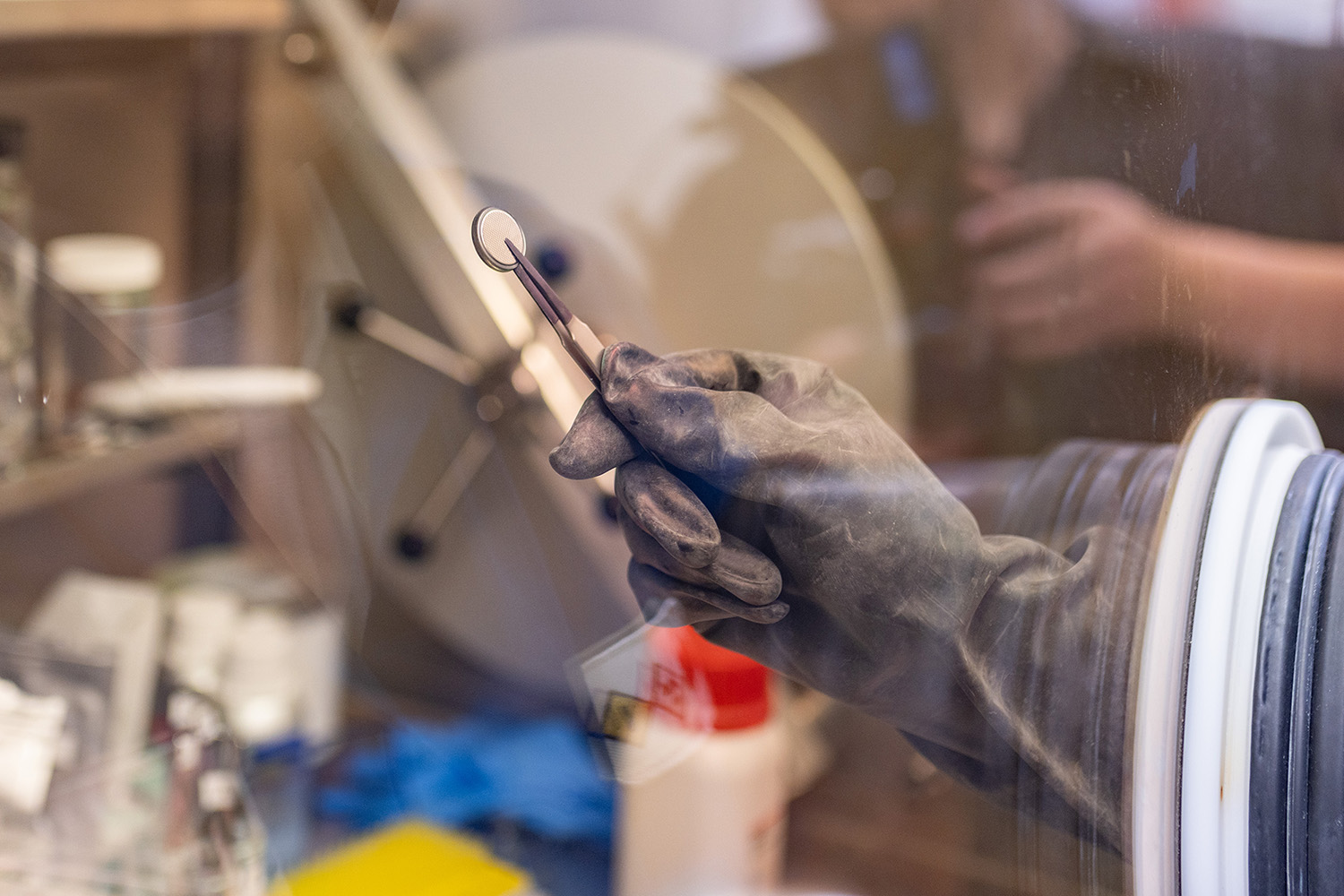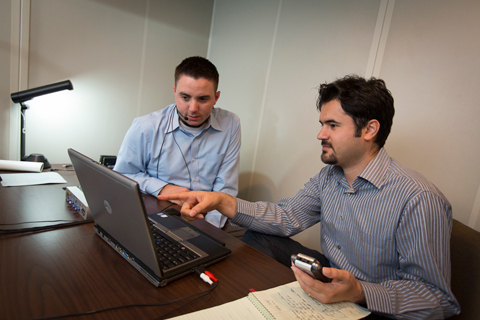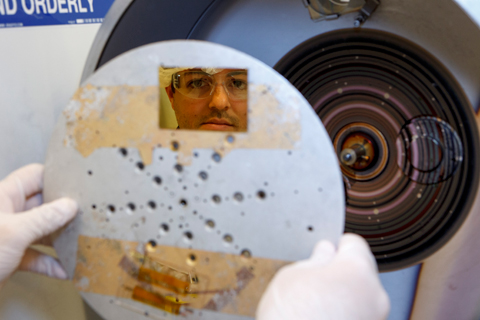
Research Centers

Batteries and Energy to Advance Commercialization and National Security (BEACONS)
The Batteries and Energy to Advance Commercialization and National Security (BEACONS) center aims to build a sustainable future for the nation through energy storage innovation, education and collaboration. Goals include advancing the commercialization and security of the nation’s energy storage systems by developing a resilient and sustainable domestic supply chain through transformative technology, agile infrastructure and an accomplished workforce.

Center for Applied AI & Machine Learning (CAIML)
The Center for Applied AI & Machine Learning (CAIML) at The Richardson Innovation Quarter is an outward-facing research and development center that will partner with companies to apply leading-edge AI and machine learning technologies to their products, services and business processes, in order to address strategically important business challenges.

Center for Applied AI at The Richardson Innovation Quarter with UT Dallas Expertise (CAIQUE)
The Center for Applied AI at The Richardson Innovation Quarter with UT Dallas Expertise, or CAIQUE (pronounced “cake”), is a multi-disciplinary center that will showcase emergent applied AI research to engage companies, win extramural grants, strengthen international partnerships and provide a global network for affiliated students to excel as UT Dallas alumni.

Center for Atomically Precise Fabrication of Solid-State Quantum Devices
The University of Texas at Dallas Center for Atomically Precise Fabrication of Solid-State Quantum Devices focuses on atomic engineering of qubits in silicon, ultimately leading to the development of useful quantum computers. Advisors from industry and major research institutions, including Texas Instruments, Zyvex Labs, Sandia National Laboratories and the National Institute of Standards and Technology join interdisciplinary researchers from UT Dallas.

Center for Control Science & Technology (CCST)
The Erik Jonsson School of Engineering & Computer Science’s Center for Control Science & Technology (CCST) is an umbrella organization of researchers in varied disciplines who meet the challenges of a rapidly changing, technology-driven global society. CCST practitioners conduct interdisciplinary research that enhances relevant control systems technology and hosts seminars presented by other leaders in the field to deliver high-quality education to students and practicing engineers.

Center for Imaging and Surgical Innovation (CISI)
The University of Texas at Dallas’ Center for Imaging and Surgical Innovation promotes collaborations between UT Dallas and The University of Texas Southwestern Medical Center in accordance with the National Institutes of Health‘s Precision Medicine Initiative. The goal for the center is to utilize imaging, computing and engineering to improve patient care. Areas of research include biomedical imaging and augmented reality, image-guided surgery, robotic intervention, artificial intelligence and data science.

Center for Robust Speech Systems (CRSS)
The University of Texas at Dallas’ Center for Robust Speech Systems (CRSS) provides advanced education in modern speech signal processing and language technology with an emphasis on fundamental engineering breakthroughs balanced with core foundations in speech and hearing sciences. Graduates are qualified for successful careers in education, industry and research laboratories interested in speech and human-computer interactions.

Center for Smart and Connected Mobility (COSMO)
The Center for Smart Mobility (COSMO) at The Richardson Innovation Quarter will provide advanced solutions for the engineering of smart, multimodal cyber transportation infrastructures to improve safety and enhance mobility for all urban road users. The center is committed to pursuing community engagement, strengthening industry collaboration, accelerating the research transition into the real world and advancing education and outreach efforts.

Center for Software Technologies to Improve (Human) Performance (h-STIP)
The Center for Software Technologies to Improve (Human) Performance (h-STIP) focuses on autonomous transportation and delivery of goods and products, with a focus on shared autonomous vehicle transportation, order delivery and monitoring aerial space for drone navigation. Researchers assess human interaction and engagement through speech processing applications, driving analysis and modeling, emotion analysis and dialog knowledge extraction. Applications include medical decision making via artificial intelligence (AI) and machine learning.

Texas Analog Center of Excellence (TxACE)
The largest university-based analog center in the world, the Texas Analog Center of Excellence (TxACE) was formed by the Semiconductor Research Corporation, the state of Texas through its Texas Emerging Technology Fund, Texas Instruments, The University of Texas System and The University of Texas at Dallas. TxACE seeks to transform analog and power circuit research into a holistic process that creates revolutionary integrated circuits and systems.

Texas Biomedical Device Center (TxBDC)
The collaborative effort carried on at the Texas Biomedical Device Center (TxBDC) engages researchers from multiple disciplines working toward a common goal: creating new biomedical technology and therapies for patients who have suffered neurological injuries. A goal of TxBDC members is to make sure recent and future technological advances make it from the research laboratory into the clinic and ultimately, to patients.

Wind Energy Center at UTD
The University of Texas at Dallas’ Wind Energy Center brings together university and industry researchers to conduct basic and applied research on topics that relate to the advancement of wind turbines and the wind industry and to train students in the advanced technologies that are important to industry members, among other subjects.







